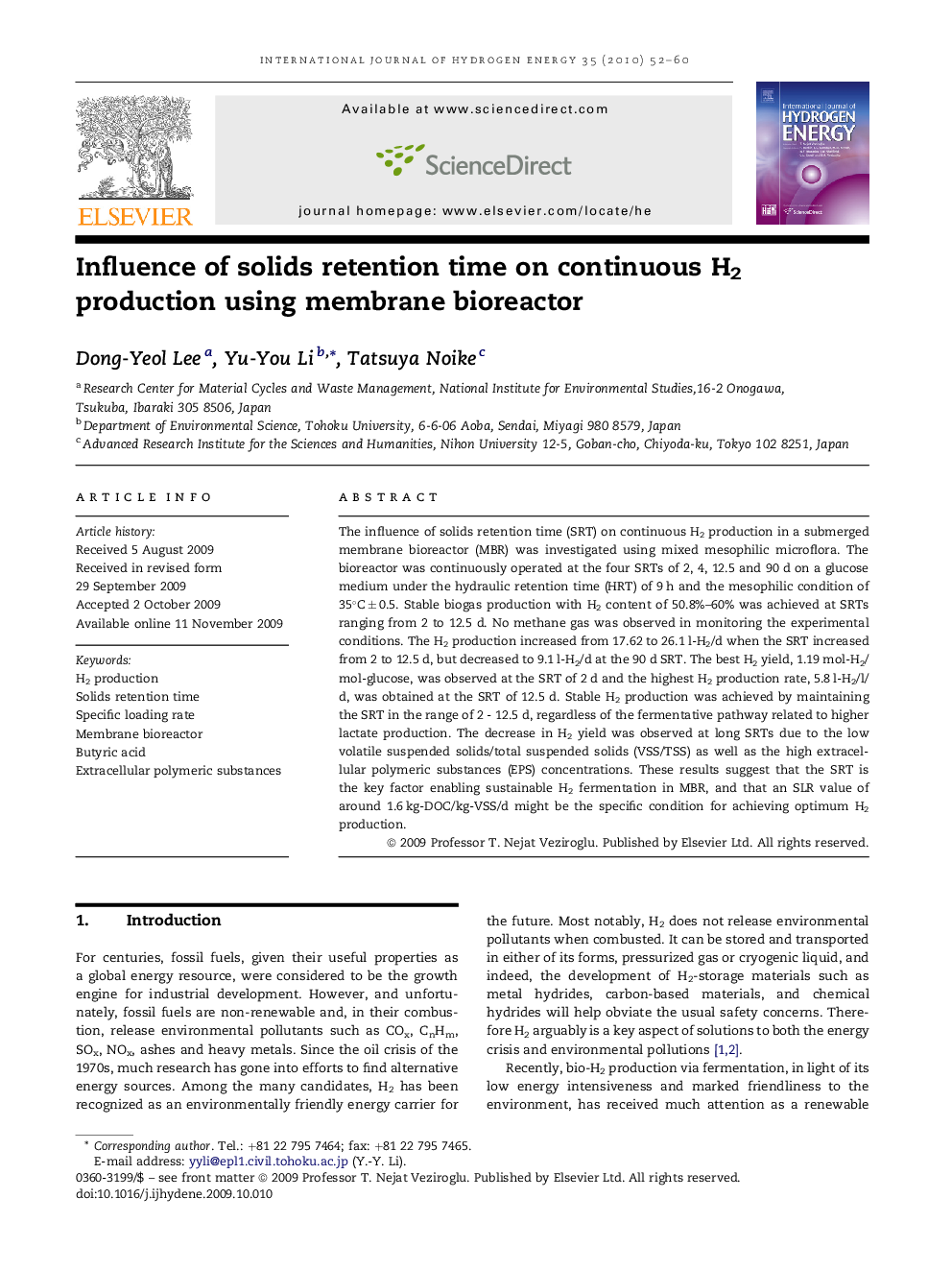| Article ID | Journal | Published Year | Pages | File Type |
|---|---|---|---|---|
| 1282963 | International Journal of Hydrogen Energy | 2010 | 9 Pages |
The influence of solids retention time (SRT) on continuous H2 production in a submerged membrane bioreactor (MBR) was investigated using mixed mesophilic microflora. The bioreactor was continuously operated at the four SRTs of 2, 4, 12.5 and 90 d on a glucose medium under the hydraulic retention time (HRT) of 9 h and the mesophilic condition of 35°C ± 0.5. Stable biogas production with H2 content of 50.8%–60% was achieved at SRTs ranging from 2 to 12.5 d. No methane gas was observed in monitoring the experimental conditions. The H2 production increased from 17.62 to 26.1 l-H2/d when the SRT increased from 2 to 12.5 d, but decreased to 9.1 l-H2/d at the 90 d SRT. The best H2 yield, 1.19 mol-H2/mol-glucose, was observed at the SRT of 2 d and the highest H2 production rate, 5.8 l-H2/l/d, was obtained at the SRT of 12.5 d. Stable H2 production was achieved by maintaining the SRT in the range of 2 - 12.5 d, regardless of the fermentative pathway related to higher lactate production. The decrease in H2 yield was observed at long SRTs due to the low volatile suspended solids/total suspended solids (VSS/TSS) as well as the high extracellular polymeric substances (EPS) concentrations. These results suggest that the SRT is the key factor enabling sustainable H2 fermentation in MBR, and that an SLR value of around 1.6 kg-DOC/kg-VSS/d might be the specific condition for achieving optimum H2 production.
